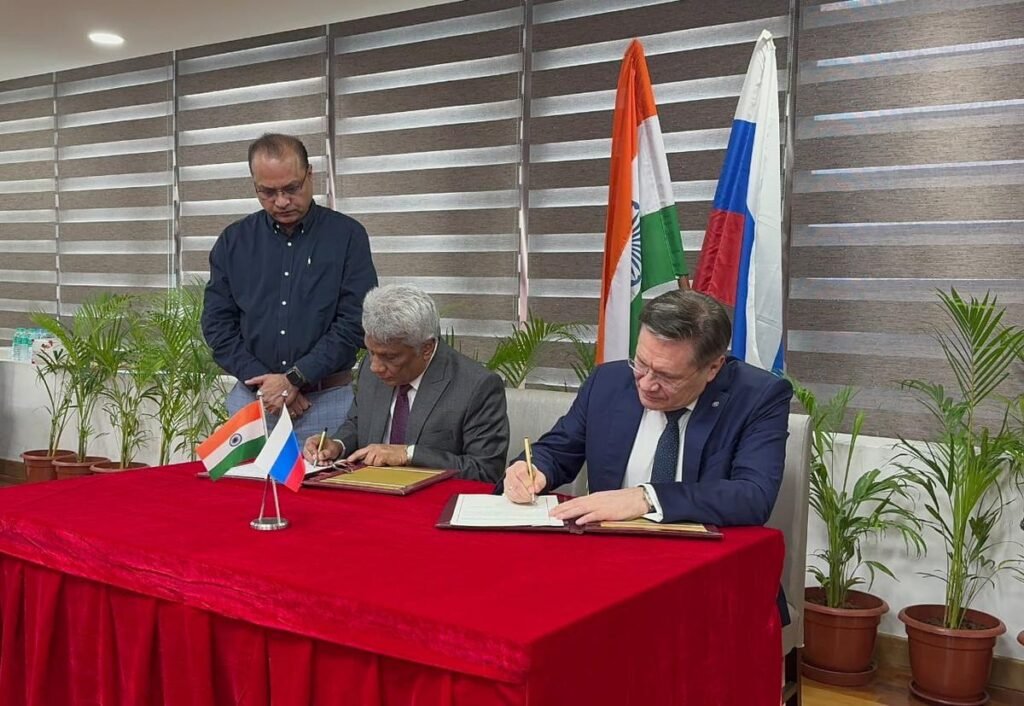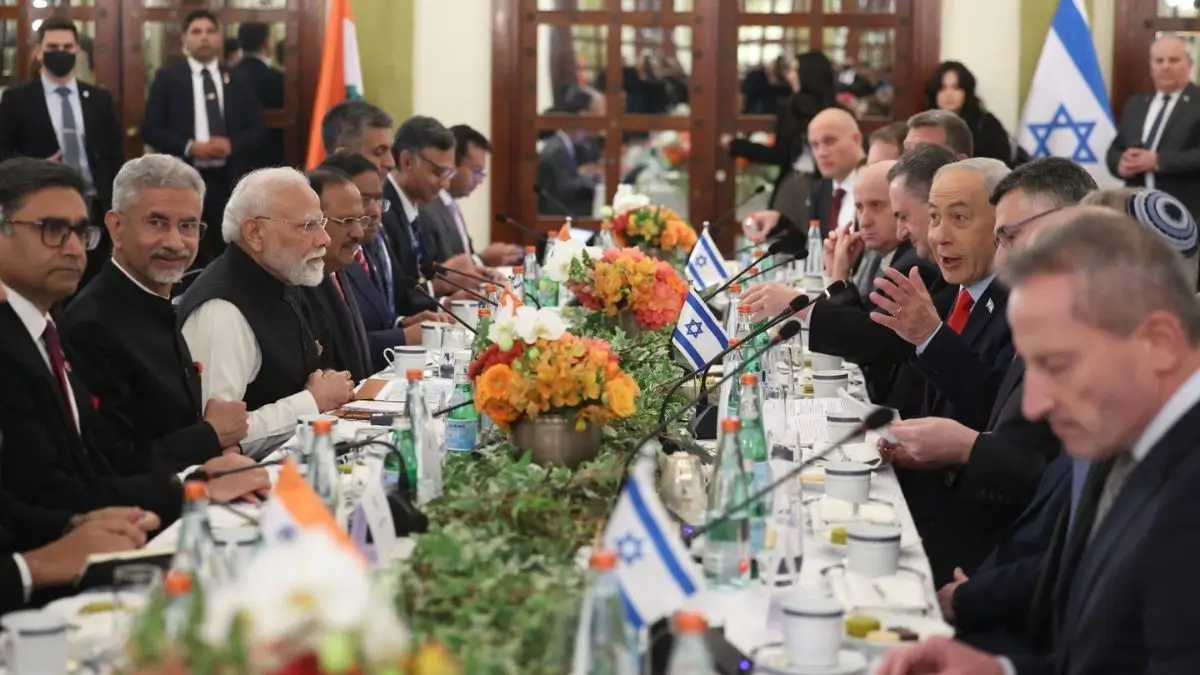India and Russia Sign Protocol on Nuclear Reactors Agreement
In the dynamic landscape of international relations, India and Russia have recently inked a significant protocol pertaining to nuclear cooperation. This development holds immense relevance for aspirants preparing for government exams, especially those eyeing positions in sectors like teaching, police services, banking, railways, and defense, including civil service roles like PSCS to IAS.
The recent protocol signed between India and Russia marks a crucial step in their longstanding partnership in the field of nuclear energy. This article will delve into the specifics of this agreement, analyzing its implications for India and its importance in the global context.

Why this News is Important
I. Strengthening Bilateral Ties:
The signing of the protocol serves as a testament to the enduring friendship and strategic partnership between India and Russia. Both nations have a history of collaboration in various domains, and this agreement reinforces their commitment to mutual growth.
II. Advancing Nuclear Energy Cooperation:
As India looks to meet its growing energy demands, nuclear energy plays a pivotal role. The protocol outlines the parameters for cooperation in the construction of nuclear reactors, fostering technological exchange and bolstering India’s energy infrastructure.
III. Global Nuclear Non-Proliferation Landscape:
In the backdrop of global discussions on nuclear non-proliferation, this agreement assumes significance. India’s collaboration with Russia in the nuclear domain aligns with international norms and reflects a responsible approach towards harnessing nuclear energy for peaceful purposes.
IV. Implications for Defense and Security:
The agreement holds implications for the defense sector, given the dual-use nature of nuclear technology. Analyzing these aspects becomes crucial for candidates aiming for positions in defense services and related fields.
V. Economic Impact and Employment Opportunities:
The collaboration in the construction of nuclear reactors opens avenues for economic growth and job creation. Aspirants in banking and other financial sectors must grasp the potential economic impact of such collaborations.
Historical Context
Indo-Russian Nuclear Ties – A Historical Perspective:
India and Russia have a longstanding history of nuclear cooperation dating back to the Cold War era. The Indo-Soviet Treaty of Peace, Friendship, and Cooperation laid the foundation for collaboration in various fields, including nuclear energy.
5 Key Takeaways from “India and Russia Sign Protocol on Nuclear Reactors Agreement”
| Serial Number | Key Takeaway |
|---|---|
| 1 | Strengthening of Indo-Russian Bilateral Ties |
| 2 | Advancement in Nuclear Energy Cooperation |
| 3 | Alignment with Global Nuclear Non-Proliferation Norms |
| 4 | Implications for Defense and Security |
| 5 | Economic Impact and Employment Opportunities |
Important FAQs for Students from this News
Q1: What is the significance of the protocol signed between India and Russia on nuclear reactors?
A1: The protocol signifies the continued collaboration between the two nations in the field of nuclear energy, aiming to strengthen bilateral ties and advance technological cooperation.
Q2: How does this agreement impact India’s energy sector?
A2: The agreement has implications for India’s energy infrastructure, contributing to the country’s efforts to meet growing energy demands through the construction of nuclear reactors.
Q3: What historical context is crucial to understanding Indo-Russian nuclear ties?
A3: The historical perspective involves the longstanding collaboration between India and Russia, dating back to the Cold War era and enshrined in the Indo-Soviet Treaty of Peace, Friendship, and Cooperation.
Q4: What are the key takeaways for candidates preparing for defense and security-related exams?
A4: Aspirants should focus on the dual-use nature of nuclear technology, understanding the implications for defense and security in the context of this agreement.
Q5: How does this collaboration open economic opportunities, and what sectors might be affected?
A5: The collaboration in constructing nuclear reactors holds economic implications, creating potential job opportunities and impacting sectors such as banking and finance.
Some Important Current Affairs Links

















